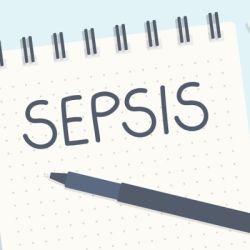Sepsis is a preventable cause of death. Early recognition, diagnosis, and appropriate clinical management can prevent sepsis and improve outcomes. However, the condition is not widely recognised by patients and the general public. In addition, knowledge gaps also persist among healthcare professionals.
Increasing knowledge and awareness of sepsis, its risk factors and symptoms among the public and healthcare professionals can help reduce the global burden of sepsis. But despite several public healthcare campaigns, there is still an incomplete understanding of the empirical literature on sepsis awareness and knowledge.
In this review, the researchers aim to identify and map the literature on sepsis awareness, general knowledge, and information-seeking behaviours. The goal is to inform future sepsis research and knowledge translation campaigns.
The review is based on a systematic search across four databases (MEDLINE, EMBASE, CINAHL, and Education Research Complete) and includes articles related to sepsis awareness, knowledge, and information-seeking behaviours among patients, the public, and healthcare professionals.
Five thousand, nine hundred and twenty-seven studies were reviewed, of which 80 reported on patient, public or healthcare professional (nurses, physicians, emergency medical technicians) awareness and knowledge of sepsis.
Findings from the review show that healthcare professional awareness and knowledge of sepsis is high compared with patients and the public. The proportion of patients/public who had heard of the term sepsis varies from region to region and was only 2% in Japan compared to 88.6% in Germany. The proportions of patients/public who correctly identified the definition of sepsis ranged from 4.2% in Singapore to 92% in Sweden. These results suggest that patient/public awareness of sepsis gradually improved.
It was also found during the review that the definition of sepsis was inconsistent in the literature and that few studies reported on patient, public, or healthcare professional knowledge of sepsis risk factors. Most patients/public get their sepsis information from the internet, whereas healthcare professionals get it through job or educational training.
Overall, the survey shows that the awareness and knowledge of sepsis among patients, the public and healthcare professionals vary globally. Future research can benefit from a consistent definition of sepsis and country-specific data to support targeted awareness campaigns for the public.
For more Sepsis news Click here
Source: Critical Care Medicine
Image Credit: iStock
References:
Fiest KM, Krewulak KD, Brundin-Mather R et al. (2022) Patient, Public, and Healthcare Professionals’ Sepsis Awareness, Knowledge, and Information Seeking Behaviors: A Scoping Review. Critical Care Medicine. 50(8):1187-1197. doi: 10.1097/CCM.0000000000005564
Latest Articles
Sepsis, Surviving Sepsis Campaign, sepsis awareness
Sepsis Awareness - Patient, Public and Healthcare Professionals



















